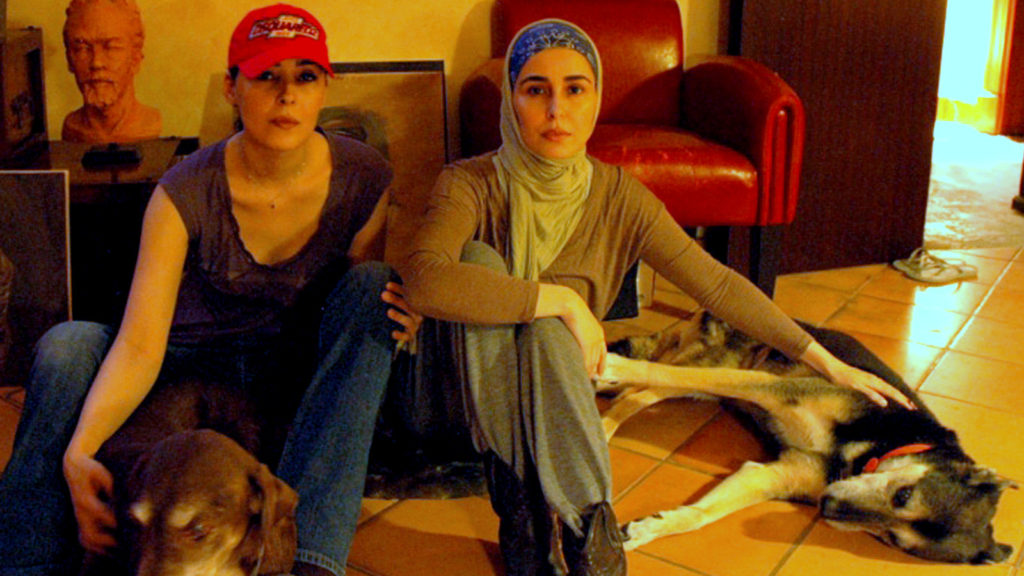Originally published at MintPress News.
RIYADH — Though they are the daughters of royalty, even princesses cannot escape the plight of women in Saudi Arabia. Despite the United States frequently citing abuses of women’s rights to justify its military incursions, Saudi Arabia remains a key U.S. ally in the region, and one of the world’s most notorious women’s rights abusers. Once hailed for their bravery in speaking out through social media, the whereabouts of these princesses seem to be unknown.
Hala, Jawaher, Maha and Sahar, born to the late Saudi King Abdullah and his ex-wife, Alanoud Al-Fayez, spent over a decade in varying degrees of captivity, according to their mother. According to Al-Fayez, the princesses were imprisoned for their modern upbringing and outspoken views on the rights of women.
Sahar and Jawaher, both held in the same royal compound, made headlines last year for speaking out via social media, even after the House of Saud punished them by restricting their access to food and water. The pair gave several video interviews to the media, and each maintained a Twitter account. Sahar even pledged support for condemned political prisoner Sheikh Nimr Al-Nimr in an openly revolutionary media statement last April. Their mother also maintained two Twitter accounts, one for herself and another, @FreeThe4, to raise awareness of her daughters’ imprisonment.

“We, along with our mother, have always been vocal all our lives about poverty, women’s rights and other causes that are dear to our hearts,” Sahar told the media.
Abdullah’s sons were reportedly active participants in their abuse. “The princesses claim that their ‘half-brothers beat them with sticks’ and ‘yell at us and tell us we will die here,’” reported the New York Post in January. The death of King Abdullah offered no respite: “My father said that after his death, our brothers would continue to detain us and abuse us,” Sahar told the Post just after his death that month.
The Post article represents some of the last available public statements from the princesses or their mother. Asobserved by activists on Twitter, social media accounts associated with the women went silent in January. Jawahar and Sahar’s Twitter accounts, along with both accounts belonging to their mother, have been deleted.
https://twitter.com/ReemaAlmahlasi/status/589199701980786688
With their Internet communications apparently cut off, their whereabouts and health are unknown.
https://twitter.com/AAli601/status/574821091182403585
A reflection of the suffering of Saudi Arabia’s women
On Friday, MintPress News spoke by phone with Ali Al-Ahmed, an expert on Saudi Arabia from the Institute for Gulf Affairs.
“Saudi runs under king’s law,” he explained, contrasting a repressive monarchy to the rule of either secular or Islamic law. “Whatever they decide they will do, they don’t have any limitations.”
Al-Ahmed called the four princesses “a microcosm” of the larger reality for Saudi Arabian women.
Gender equality in Saudi Arabia is among the worst in the world, according to a 2013 survey by the World Economic Forum, which ranked the nation 127 out of 136 countries. Saudi women are not allowed to travel without designated male guardians. Women who defy the ban on driving cars have been arrested as recently as February, when two women were detained for 70 days after attempted to drive into the country from the United Arab Emirates. Women are banned from participation in politics and receive segregated, unequal education.
Social media and Internet communication have offered new ways for Saudi women to assert their independence. “In Saudi Arabia, we live more of a virtual life than a real life,” an anonymous woman told the Daily Mail in 2008.
Ride-sharing apps have also been extremely successful, largely because they let women circumvent the driving ban. “There are some [women] that take five to 10 trips with us every day,” said the founder of Careem, a Dubai-based version of Uber. “We don’t see that kind of traffic anywhere.”
While some Saudi women can enjoy the freedoms offered by modern technology, the recent absence of Sahar, Jawaher, Hala and Mala from social media is ominous, showing how easily newfound voices can be silenced once more.